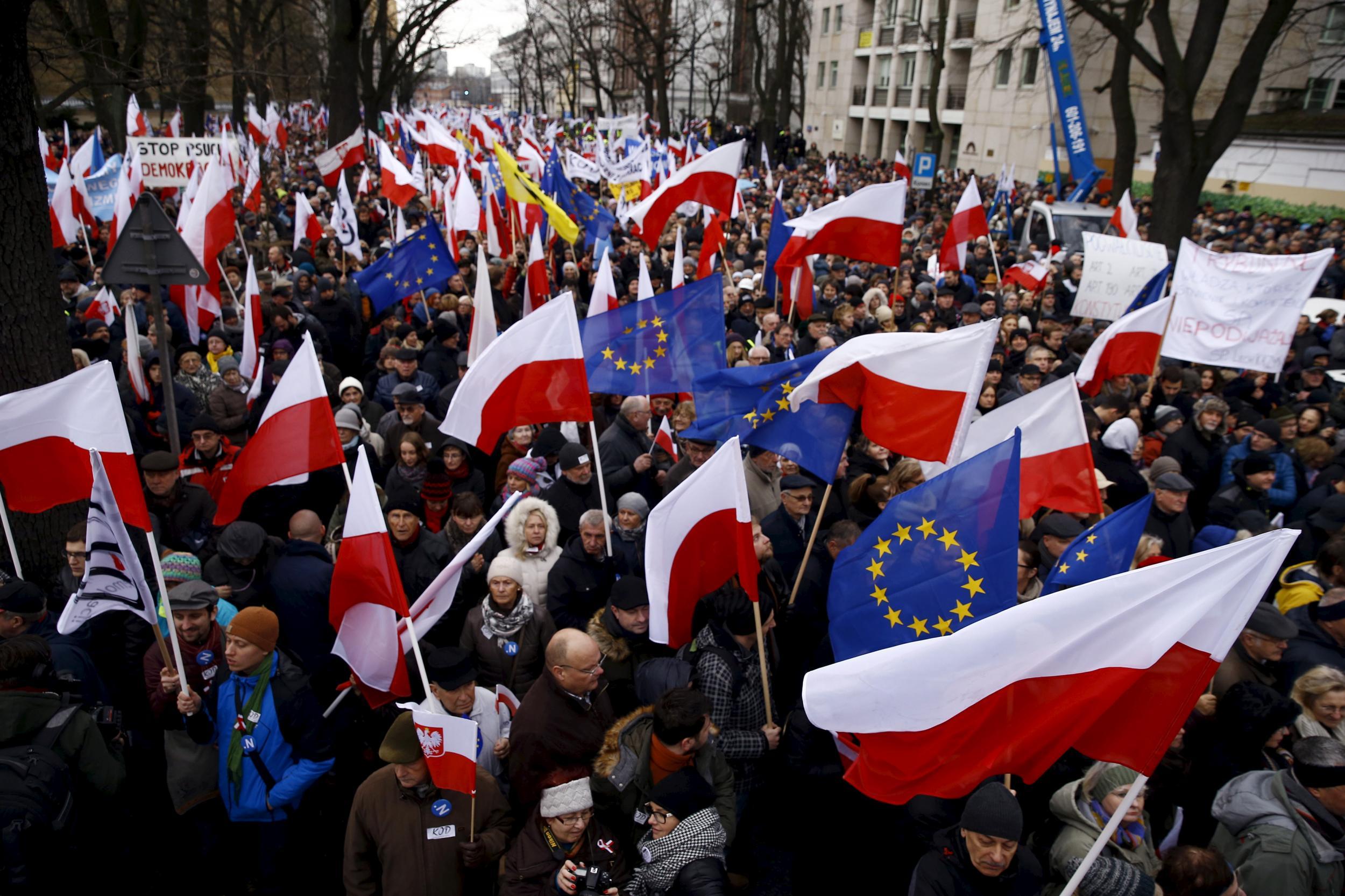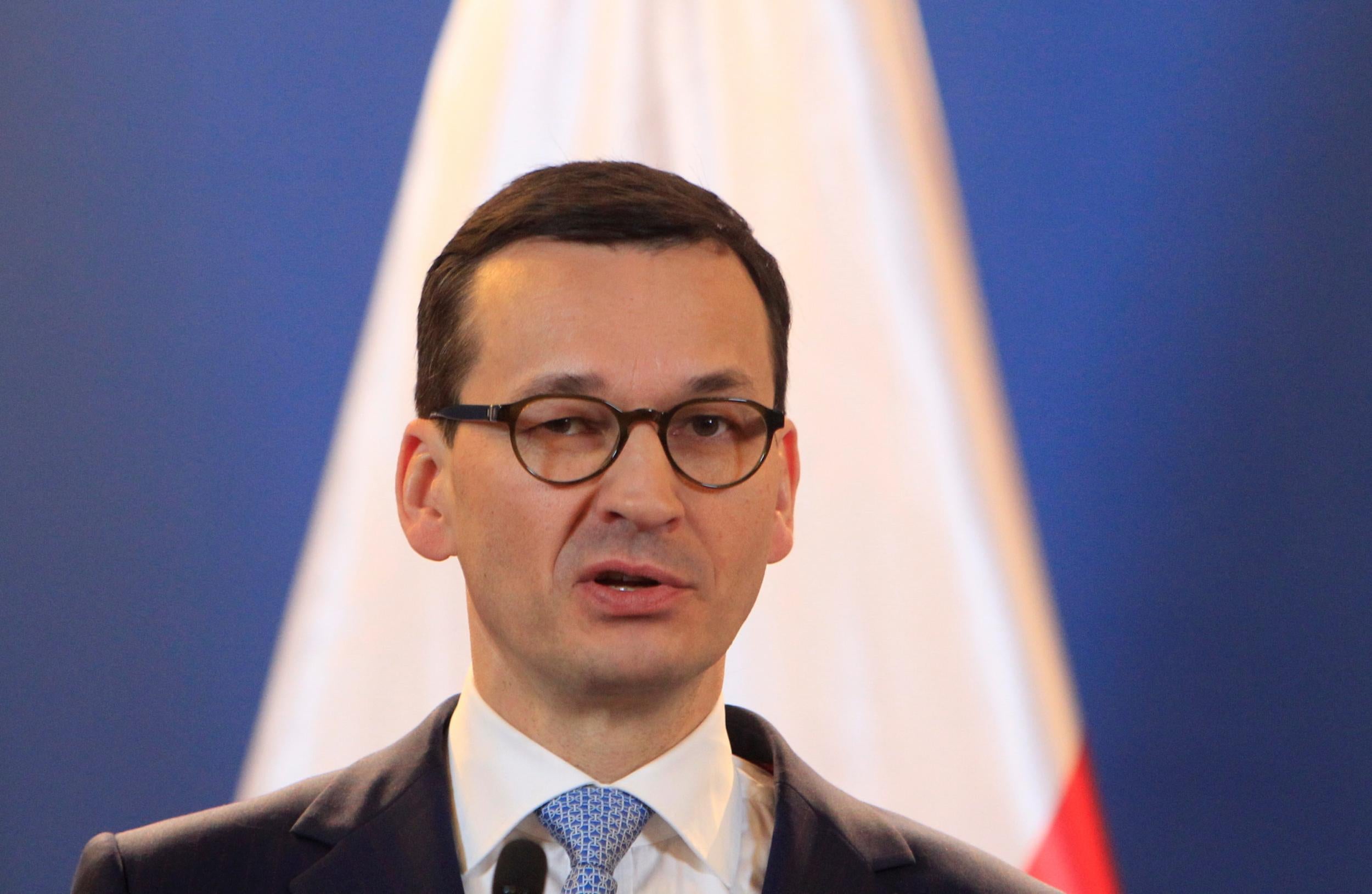Support for EU membership reaches record high in Poland despite showdown with Brussels
The EU has criticised the Polish government and taken the first step towards sanctions

Your support helps us to tell the story
From reproductive rights to climate change to Big Tech, The Independent is on the ground when the story is developing. Whether it's investigating the financials of Elon Musk's pro-Trump PAC or producing our latest documentary, 'The A Word', which shines a light on the American women fighting for reproductive rights, we know how important it is to parse out the facts from the messaging.
At such a critical moment in US history, we need reporters on the ground. Your donation allows us to keep sending journalists to speak to both sides of the story.
The Independent is trusted by Americans across the entire political spectrum. And unlike many other quality news outlets, we choose not to lock Americans out of our reporting and analysis with paywalls. We believe quality journalism should be available to everyone, paid for by those who can afford it.
Your support makes all the difference.Support for staying in the European Union has reached a record high in Poland despite the country’s right-wing populist government staging a political showdown with Brussels over the rule of law.
A new survey by pollsters CBOS shows 92 per cent of the Polish population wants to remain in the EU, up three per cent on the last poll – with just eight per cent wanting to leave, down three per cent.
Late last year the European Commission recommended the triggering of the EU treaty’s Article 7.1 against Poland, warning that authoritarian changes to the country’s judiciary were breaching the values of the union.
But as PM Mateusz Morawiecki visits Brussels on Tuesday evening for talks with Commission president Jean-Claude Juncker, the EU is as popular as ever across the political spectrum in the eastern European member state.
While population is generally positive about more European integration, joining the European single currency is however not popular, with 77 per cent wanting to keep the national currency against 23 per cent.
Polish support for joining the EU dropped to its nadir in 2001, ahead of the country’s accession in 2004.
The European project has always been popular in the country, however, with the lowest level of support seen in 2001 still above 50 per cent, while outright opposition barely breached 30 per cent of the population even at its height.
Though support for the EU declined slightly in the wake of the 2008 the financial crisis, it has now climbed back to its highest level yet since the recovery started to take hold in 2003.
PM Mr Morawiecki, who came to power after an internal party coup in the final quarter of 2017, conducted a wide-ranging government reshuffle on Tuesday ahead of his visit to Brussels – replacing his foreign secretary, defence secretary, health minister, environment minister, and infrastructure secretary.
The European Commission took the unprecedented step of recommending a move towards political sanctions against Poland on 20 December. The announcement came after two years of the country’s government passing laws that threaten the judicial independence of the country’s courts – including those that judge whether elections have been free of fair.

The next step in the Article 7 procedure will be for EU heads of state to consider the Commission’s procedure and to vote on it. This is expected to take place at the March meeting of the European Council; in order for the proposal to pass, a supermajority of four fifths is required. The European Parliament would also have to back the motion.
The Article 7.1 motion put forward by the Commission will warn that there “is a clear risk of a serious breach by a Member State of the values” of the EU – which include the rule of law and the independence of the judiciary.
If the breach continues then member states can be asked to vote again, under Article 7.2, to confirm that there is a “serious and persistent breach” – which if passed could see Poland’s voting rights in EU institutions suspended.
The second vote would however be harder to pass, because it requires the unanimous consent of the other EU member states – and Hungary’s right-wing authoritarian prime minister Viktor Orbán has said he would vote against such a move. Mr Orbán has also been accused of pursuing anti-democratic reform.
Join our commenting forum
Join thought-provoking conversations, follow other Independent readers and see their replies
Comments